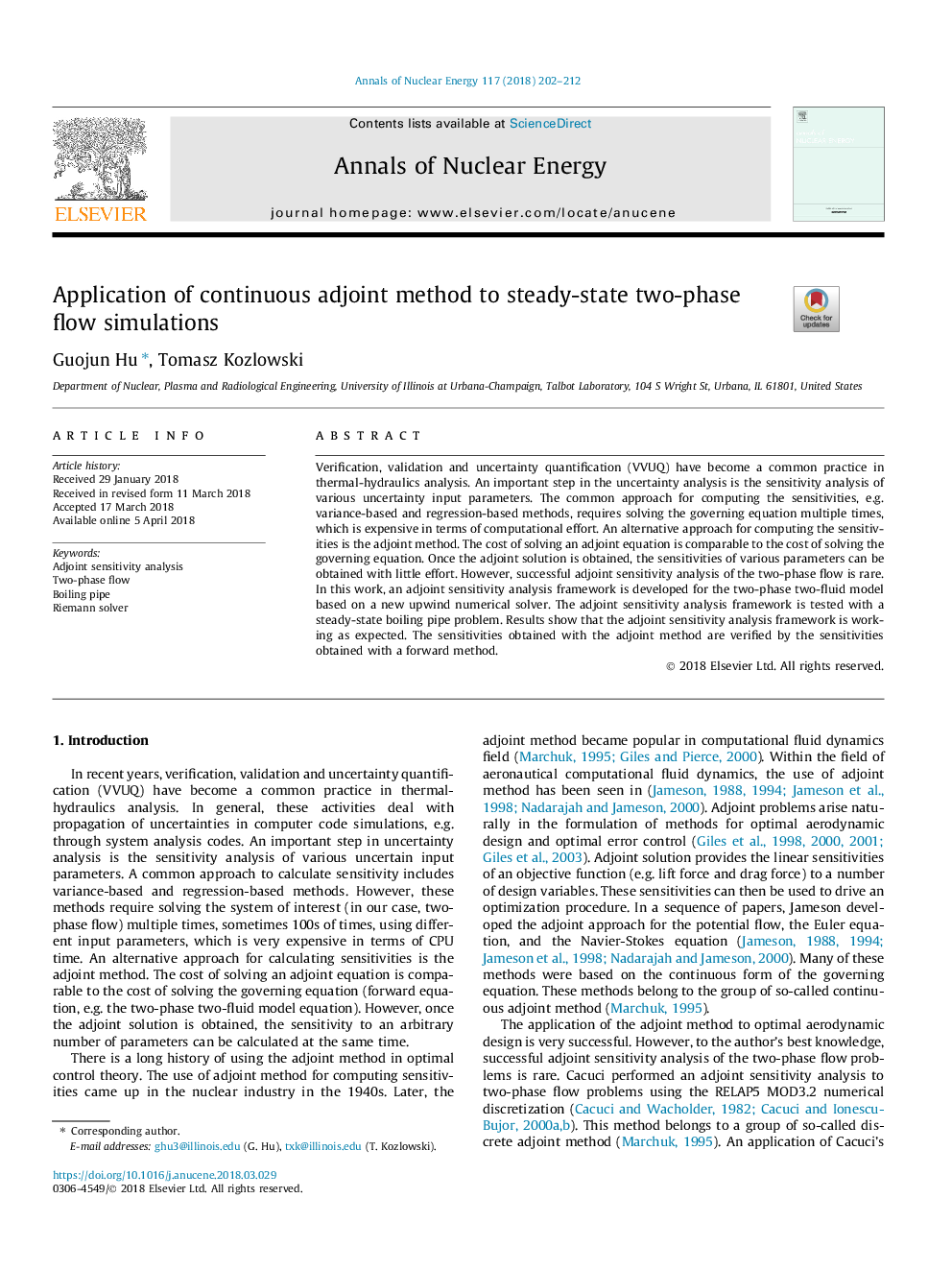| Article ID | Journal | Published Year | Pages | File Type |
|---|---|---|---|---|
| 8067010 | Annals of Nuclear Energy | 2018 | 11 Pages |
Abstract
Verification, validation and uncertainty quantification (VVUQ) have become a common practice in thermal-hydraulics analysis. An important step in the uncertainty analysis is the sensitivity analysis of various uncertainty input parameters. The common approach for computing the sensitivities, e.g. variance-based and regression-based methods, requires solving the governing equation multiple times, which is expensive in terms of computational effort. An alternative approach for computing the sensitivities is the adjoint method. The cost of solving an adjoint equation is comparable to the cost of solving the governing equation. Once the adjoint solution is obtained, the sensitivities of various parameters can be obtained with little effort. However, successful adjoint sensitivity analysis of the two-phase flow is rare. In this work, an adjoint sensitivity analysis framework is developed for the two-phase two-fluid model based on a new upwind numerical solver. The adjoint sensitivity analysis framework is tested with a steady-state boiling pipe problem. Results show that the adjoint sensitivity analysis framework is working as expected. The sensitivities obtained with the adjoint method are verified by the sensitivities obtained with a forward method.
Related Topics
Physical Sciences and Engineering
Energy
Energy Engineering and Power Technology
Authors
Guojun Hu, Tomasz Kozlowski,
